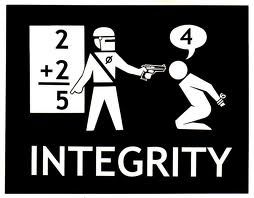Transgender
Censorious Academics Try Again
Threats to Academic Freedom: From Academics
Posted December 22, 2019
I just discovered ANOTHER academic petition attempting to censor a published paper for nothing but concocted empty "reasons" that amount to little more than "the work offended us."

The petition was directed to the editor of the journal (ENeuro) and the head of the professional society that sponsors the journal (Society for Neuroscience).
Below, you will find an open copy of a slightly edited email I sent to both of them in support of publishing the article and opposing retraction on grounds other than egregious errors (vaguely alleged without substantiation) or data fabrication (not even alleged).
Dear Drs. Bernard & Everitt,
I strongly oppose the call for retraction of this article:
By the signatories of this petition:
Call for eNeuro to retract 'gender dysphoria' theory paper
The article has undergone peer review, and the signatories do not identify any actual errors; nor do they even allege data fabrication. This petition is just the leading edge of censorious academic outrage mobs seeking not to refute research that offends them, but to denounce and blacklist such work.
You are now the frontline in the defense of academic freedom. If the signatories have an objection to the paper, they are welcome to attempt to publish a critique. They have neither credibility, nor justification, to call for a retraction.
Publication Decision-by-Outrage is not how we should be conducting ourselves.
Lee Jussim
-----------------------------------------------------------------

If you look up the authors of the censorious petition, you will discover than none actually have a shred of scientific accomplishments regarding transgender issues or gender dysphoria (the topics of the paper they targeted for retraction). The arrogance of the effort is only exceeded by its shameless self-righteousness.
If you are interested in this type of problem, I have covered a rising tide of academic outrage mobs in other essays at Psychology Today, including my most recent blog in which an academic was the target of an outrage mob for having the unmitigated gall to oppose required diversity statements; this one, on how a scientist was mobbed and actually lost a consulting position when her published scientific article on a topic similar to the present essay was targeted by academic and other activists, and this broader essay that identifies a slew of such incidents. My most data-informed essay on this problem appears here.
If you are interested in helping do something about this, please consult the recommendations that appear here.
UPDATE 5/3/20. ENeuro retracted the article. You can find a short summary, including links to their justifications here. Retraction Watch posted a scathing criticism of ENeuro's decision here, that,

among other things, says this: "... the journal appears to have badly botched this case" and "...it can’t fairly hide behind the claim — which it now seems to be making — that it had inadvertently accepted a poorly-done study." This justification for retraction -- treating Gliske's paper as an empirical rather than theoretical one -- beggars belief because it is so transparently absurd to evaluate a theoretical paper as if it reports new studies. The Retraction Watch also made this simple statement, which probably captures the core reasons the paper ran afoul an academic outrage mob: "A journal has retracted a controversial paper that questioned what it called the “existing dogma” about gender."
------------------------------------------------------------------
I would be delighted for you to post a comment, but, before doing so, please read my Guidelines for Engaging in Controversial Discourse. Short version: Keep it civil (no insults or ad hominem, no profanity or sarcasm), brief, and on topic, otherwise I will take your comment down.
-----------------------------------------------------------------------------------------------------
See this?
The thing circled in red is the comments icon. It can be found below. If you want to leave a comment, click it down below.
I bring this up because, uncharacteristically, my last few blogs have had no comments. I suspect part of the issue is that people do not realize that is the comment icon. Also, you have to click that same icon if you want to see other people's comments. If it has a number in it, that is the number of comments.


